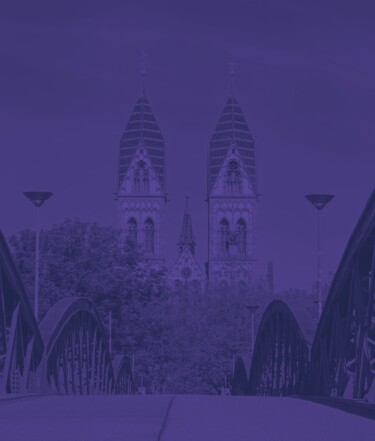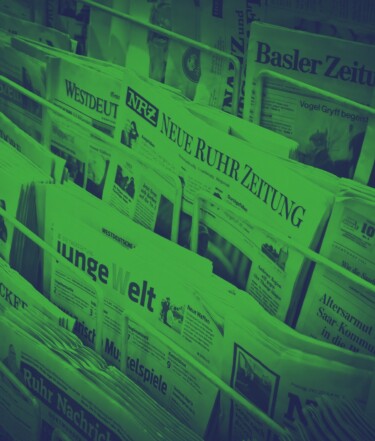
Freedom of Expression in Social Networks
A refugee was convicted for sharing a legally published article on his Facebook profile. We are appealing with him.
Deutsche Welle is the foreign broadcaster of the Federal Republic of Germany and reports in 30 languages on events in Germany and worldwide. In a February 28, 2018 article, the broadcaster presented its research on IS arms deals. The article, titled in German "Die Waffen des IS" ("The Weapons of IS"), is therefore illustrated with a photo of armed IS fighters, some of whom carry the organization's banned symbols.
Legal article - illegal linking?
The dissemination of the symbols of banned organizations is prohibited under Section 20 (1) No. 5 of the Law on Associations. This is to prevent the symbols from being disseminated or trivialized for propaganda purposes. Press products are exempted from the ban under Section 9 (1) sentence 2 of the Associations Act because they pursue the socially desired goal of "civic education": They impart knowledge and thus encourage the formation of political will. Although IS and its symbols have been banned in Germany since 2014, the photo could therefore be displayed perfectly legally on the Deutsche Welle website.
The Augsburg Local Court saw things differently as far as Mokhmad A. was concerned. He linked to the Russian-language version of the article on the publicly viewable chronicle of his Facebook profile. The post image and the first lines of the article were displayed there. The court considered this to be the dissemination of symbols of a banned association. In the same decision, it convicted him on another point. It considered a video shared on the profile to be an unlawful depiction of violence. The video shows a child being bitten by dogs animated by Israeli soldiers*. It has been the subject of international political discussion. In total, the district court sentenced Mokhmad A. to a fine of 90 daily rates.
Disregard for freedom of expression
After Mokhmad A. filed an appeal with the support of GFF, the Bavarian Supreme Regional Court overturned the first-instance verdict in a decision served on February 18, 2020, and referred the case back to the Augsburg Local Court. The district court must now decide again. It can discontinue the proceedings, and a new conviction of the defendant is also possible. This time, however, the court would have to take a more differentiated look at the defendant's expression of opinion. The man may only be convicted if the court concludes beyond doubt that he did not share the DW article in order to deal with its content - but, for example, to make propaganda for the IS.
In its first conviction of Mokhmad A., the district court had misjudged the scope and significance of his freedom of expression. The further dissemination of a legal press report must not be punishable, even if it contains prohibited symbols. This is because a discussion of press coverage is part of the political discourse. This requires legal certainty. Restrictions on freedom of expression, such as a ban on disseminating the symbols of banned organizations, must be well-founded and subject to strict constitutional limits. In this case, the ban was applied beyond the constitutional framework.
The GFF supports Mokhmad A. to clarify that sharing and discussing legal press reports on social networks is covered by freedom of expression. Mokhmad A. is represented in the proceedings by Berlin lawyer Johanna Künne. We would like to thank Justus Dill, lawyer and doctoral student, for his substantive support in this case. The appeal before the Bavarian Supreme Court was successful in February 2020: the court overturned the September 2019 ruling and referred the case back to the Augsburg Local Court. This must now decide again.
- The file number of the proceedings before the Augsburg Local Court is 11 Cs 101 Js 112076/18 (2). The file number of the proceedings before the Bavarian Supreme Court is Az 207 StRR 8/20.




